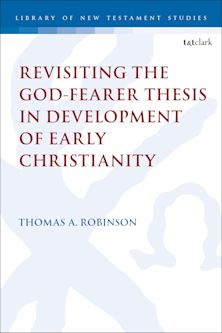Britain, the Bible, and Balfour
Mandate for a Jewish State, 1530–1917
Britain, the Bible, and Balfour
Mandate for a Jewish State, 1530–1917
This product is usually dispatched within 1 week
- Delivery and returns info
-
Free CA delivery on orders $40 or over
Description
In 1917 only Britain would have taken the decision to favor a Jewish “national home” when the opportunity occurred to dismantle the Ottoman Empire, for it had been interlocked with the Hebrew Bible since political and theological crises in sixteenth- and seventeenth-century England released the so-called Old Testament from its defined role as a christological premonition of the New Testament. Britain, the Bible, and Balfour unpacks the tumultuous history of the idea of a unique Jewish home state—and the development of Zionism—as it took shape over the course of several centuries in England. The author argues that, in fact, the theopolitical vision of Zionism is a peculiarly British phenomenon with roots that go back to the English Reformation. The religious and political battles over the Bible, the role of Hebrew scripture, the monarchy, and national identity provided the fortuitous, if providential, groundwork for the recovery of a vision of the Jewish people as a unique community with a mandated home. Zionism emerged from this context as a powerful movement that advocated for the return of the land and the people as a divinely ordained religious and political project. Yet, as this volume demonstrates, that idea is explicable only on the basis of the contextual events in early modern England, and would take nearly five hundred years to become a geopolitical reality. This volume provides a critically important genealogical account and illuminates the fascinating history of how England became the surprising progenitor of a revolutionary idea.
Table of Contents
Introduction
Part. I The Root of the Matter 1530-1840
1 England's Political Reformation
2 The Rise of the Puritans
3 A Jew in Peru
4 “No More Our Ancient Enemy”
5 The Hartlib Circle
6 Cromwell's Secular Dilemma
7 Three wise Machiavellians
8 A Complex Messiah
9 Deists Assault the Bible
10 A Tale of Two Enlightenments
11 Science and Restoration in the Age of Reason
Part II From Belief to Action 1840-1914
12 Shaftesbury and Palmerston: "The Time has Come"
13 Two Rabbis and a Socialist Saint
14 The View from Afar. America, Australia and Russia
15 Gladstone or Disraeli
16 The Evolution of George Eliot
17 Herzl in Wonderland
18 Science, Faith and Balfour
Postscript
Bibliography
About the Author
Product details
| Published | Oct 16 2019 |
|---|---|
| Format | Hardback |
| Edition | 1st |
| Extent | 436 |
| ISBN | 9781498590730 |
| Imprint | Lexington Books |
| Dimensions | 226 x 161 mm |
| Series | Bloomsbury Studies in Modern Jewish History, Historiography, and Memory |
| Publisher | Bloomsbury Publishing |
Reviews

ONLINE RESOURCES
Bloomsbury Collections
This book is available on Bloomsbury Collections where your library has access.


































